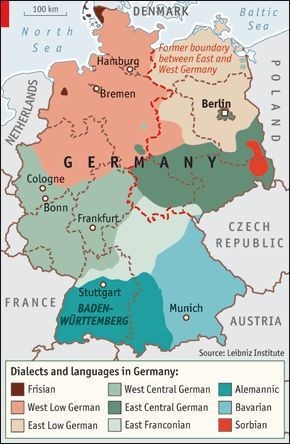
English-German Cognates – Common English Words Derived From German
37 Everyday English Words that Came From German (& Why)
Did you know that the first dictionary of the English-language was published in 1604?
That’s right, my friends. Our precious language is not that old.
It may not come as a surprise to many that English is a mutt language, the result of countless invasions and even Roman Catholic missionaries, but others continue to argue about whether or not English is considered a Proto-Germanic language as opposed to a Latin language.
Before looking at some of the Germanic words in English that we use constantly in our everyday lives, let’s get down to the root of this perennial question.
Is English a Germanic Language or a Latin Language?
“English has so many French and Latin words. Why isn’t it considered a Latin language?”
Actually, English is generally considered a proto-Germanic language (we’ll get into other theories later).
Here’s why.
Languages are Characterized by Genetic Relationship, Not Loan Words
In linguistics, languages are characterized by their genetic relationships.
What are genetic relationships between languages? Normally grammatical tendencies and syntax (sentence structure) – but not necessarily the amount of loan words one language might have.
In other words, English might have more loan words from French and Latin combined, but it resembles German more in its grammar and syntax.
How did English adopt these Germanic tendencies?
Basically, English Used to Be a Dialect of German
As you may remember from your AP world history class, the island of Britain was invaded countless times over several hundred years from tribes living along the coast of northern Europe.
About 1,500 years ago, the Angles (a Germanic tribe) crossed the English channel into what is today Great Britain, shortly followed by these guys:
- The Saxons (also Germanic)
- The Jutes (the early Danes)
- & The Frisians (a Germanic tribe from the coast of the Netherlands)
| Fun Fact: Frisian is one of a number of Germanic languages, a family that also includes English, German, Dutch, Afrikaans, Norwegian, Danish, Faroese, Swedish, and Icelandic. The language West Frisian is still spoken today in the Dutch province Friesland, and Frisian is still found in parts of Germany. |
These invading groups found the Celts living in Great Britain at the time, a people who had been there for thousands of years.
And in true medieval hospitality, many of the Celts were either enslaved or killed. The lucky ones escaped to modern-day Wales.
Through the years, the Saxons, Angles, and Jutes mixed their languages and would occasionally include some Celtic and old Norse influences from the Vikings (who gave us words like skull, sky, leg, and crawl).
The result? What we call Anglo-Saxon or Old English, a hodgepodge dialect, mainly influenced by Germanic languages.
Old English Used to Have Noun Cases Like German
But what REALLY makes Old English a proto-Germanic language is its grammar and syntax.
Old English used to have noun cases, like Accusative, Dative, Genitive, and Nominative.
Not only this, but it also had the highly complex German declension – where the article, noun, and adjective of a noun would change depending on gender, similar to how modern-day German works today.
But clearly, this didn’t last forever. So what changed?
(Learn more about Old English Grammar in the video below).
Here’s What Happened to the Germanic Influence on Grammar
The Norms happened.
That’s right. When the Norms invaded Great Britain in 1066 and consequently conquered England, the nobility replaced words for law, power, royalty, and cuisine. As Old English started to mix with French, it became what we know today as “Middle English” and lost many of its prized grammatical complexities.
Hence why we have so many English words of French origin. As time went out, even the Normans started to speak a mix of Old English and French, much like the development of Spanglish today in the U.S.
Could English Actually Be a Creole?
Some linguists even have theories, more specifically the Middle English Creole Hypothesis, that the English language was a creole language, seeing as it is typical of creoles to blend words of two different languages but take on vastly simpler grammar structures than the “master” language. This would explain why English lost all of the genders and noun cases.
But the general consensus is that when the first English dictionary was published in 1604, English was and still is a proto-Germanic language with French and Latin influence.
However, German is not very far from the English language at all. We use Germanic words every single day.
German to English Cognates: 37 Everyday Germanic Words in English
Everyday German phrases and German to English cognates (basically word cousins) are super prevalent in our daily language and will really help you jump headfirst into the language. Check out these everyday Germanic words in English.
1. Allein (Alone)
2. Apfel (Apple)
3. Blau (Blue)
4. Buch (Book)
5. Denken (To think)
6. Eis (Ice, ice cream)
7. Ellbogen (Elbow)
8. Finger (Finger)
9. Gast (Guest)
10. Gehen (To go)
11. Glas (Glass)
12. Grün (Green)
13. Haar (Hair)
14. Heilig (Holy)
15. Herz (Heart)
16. Juwel (Jewel)
17. Knie (Knee)
18. Kuh (Cow)
19. Lernen (To learn)
20. Milch (Milk)
21. Mutter (Mother)
22. Mund (Mouth)
23. Nackt (Naked)
24. Nase (Nose)
25.Neu (New)
26. Nuss (Nut)
27. Oft (Often)
28. Preis (Prize)
29. Sehen (To see)
30. Schule (School)
31. Schulter (Shoulder)
32. Sohn (Son)
33. Stein (Stone)
34. Tanzen (To dance)
35. Trinken (To drink)
36. Vater (Father)
37. Wasser (Water)
Now Take Your German Language Skills to the Next Level

See? German isn’t as complicated (or kompliziert) as you think.
Try a free week of access to our German language lessons online or through our app to discover core vocabulary, pronunciation, quizzes, videos, and more.

2 Comments for "English-German Cognates – Common English Words Derived From German"